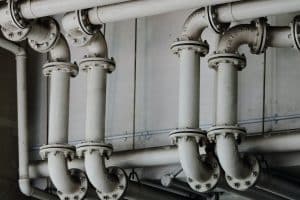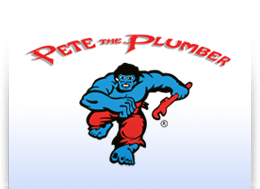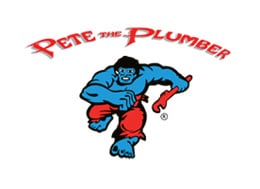
Nobody wants to call a plumber unless they have to. The problem is that if they leave it until they MUST call a plumber, the problem is already full-blown and repairs can be expensive.
Let’s look at how you can avoid those expensive repairs.
Taking certain maintenance steps and applying a few simple fixes will help you keep everything in working condition in your home and ensure that if a plumber is needed, it’s not in a total disaster situation.
The following seven maintenance tips do not require a plumbing degree and most homeowners in Calgary should be able to get to grips with them.
- 1. Clean your garbage disposal/garburator
- 2. Unclog a toilet as soon as you detect a problem – and educate family members!
- 3. Clean your showerhead to avoid low water pressure
- 4. Take steps to maintain your hot water supply
- 5. Secure water pipes to prevent banging noises in your home
- 6. Deal with the hard water problem in Calgary
- 7. Keep the right tools in the house
- Need a plumber?
1. Clean your garbage disposal/garburator
Many Calgary high-rises install garbage disposals into their units to prevent blockages and major damage to the sewer line.
Ensuring that you keep a well-maintained and fresh-smelling garbage disposal is not only more pleasant for you and the family – it can avoid expensive and unnecessary repairs.
A simple maintenance step with garburators is to run cold water and ice cubes through it to clean it and sharpen the blades. Always check your instruction manual first, of course.
You can create a nice scent in the garburator by adding lemon peel when you grind the ice.
Importantly, make sure that the whole family knows what can and can’t be put into the garbage disposal. Blockages are common because of misinformation or carelessness about what is thrown in. Do not put the following into the unit:
Coffee grounds
Grease/fat
You can read more about how to maintain a garbage disposal unit in this post.
2. Unclog a toilet as soon as you detect a problem – and educate family members!
A “mysteriously” clogged toilet is usually no great mystery. In most cases, someone has put something down it that they shouldn’t have.
Much like with a garbage disposal unit, many things are simply not intended to end up in a toilet bowl – but you’d be amazed what we find.
Some common culprits for creating toilet blockages include:
Sanitary towels
Food
Too much toilet paper
If you do encounter a blockage, deal with it as soon as you can. Don’t continue to use the toilet and hope the problem goes away or you may have a nasty overflow to contend with.
First, diagnose the problem. Pour two or three gallons of water into the bowl itself and see if it clears the block. If not, and the toilet does actually flush, the block is probably between the toilet bowl and the pipes.
You’ll need a plunger with an extension flange on the bell-shaped rubber end as they generally fit toilets better. Place the plunger with the bell shape covering the toilet trap and exert a small amount of force. This will get all the air out of the plunger without blowing water everywhere.
Then, start exerting more force and plunge in and out, which should force water back and forth, loosening the clog. That will clear most blocks but more stubborn ones may need an auger or a plumber’s expertise.
Get more in-depth tips on how to unclog a blocked toilet in this post.
3. Clean your showerhead to avoid low water pressure
This is a quick and easy one.
Some homeowners call plumbers because their water pressure is low. While water comes out of taps at normal pressure, the showerhead produces little more than a dribble.
Some simple cleaning maintenance often solves this. Simply take off the showerhead and leave it in vinegar overnight. You can also clean the water outlets using a pin.
Take preventative steps to avoid mildew in the bathroom, which may clog showerheads. Keep the extractor fan running and/or leave a window open when you are running your shower.
Make sure your bathtub and shower stall are free of mildew (they will dry faster) and don’t leave wet towels hanging around too long.
Ventilating your home (don’t forget the basement) and preventing mould and mildew is a general maintenance tip for the whole home – not just the bathroom. Wet clothes and towels in the laundry room are another mould attractant.
If your home is susceptible to mould, a dehumidifier to dry the walls and air may be a good investment.
4. Take steps to maintain your hot water supply
The hot water not being hot enough is a common reason why plumbers are called out to Calgary households.
In many cases, fixes are simple and some simple maintenance steps may have prevented the issue in the first place.
One common problem with an easy fix is a thermostat that needs adjusting. They sometimes get bumped accidentally. All you need to do is remember to check yours regularly. Some people might turn the thermostat down in summer to conserve energy and forget to turn it up in winter.
With tank-based systems, sediment build-up in the tank can be a problem. Calgary water is hard (see tip six) and carries many minerals so it’s best to use a water softener and drain/clean the tank at regular intervals.
Depending on the age and type of your water heating system, older water heaters may suffer a broken dip tube, a leak, a broken heating element, or a broken gas valve (you may smell rotten eggs or garbage). These problems need urgent professional plumbing attention.
Regular checking and maintenance such as flushing will prevent damage to your water heating system. Calgary homeowners depend on a regular supply of hot water year-round and repairs can be a major expense, so it will pay to get an annual service of your system.
More about maintaining a consistent hot water supply in this post.
5. Secure water pipes to prevent banging noises in your home
Banging water pipes are a common problem – and because it can be quite alarming to hear these thwacking noises coming from copper water pipes, plumbers are often called out.
You can take a few preventative measures to stop this problem from happening and if it does happen, troubleshot the issue quite easily.
Banging noise may be triggered when you run the hot or cold water or shut off the hot or cold water. It is most common with copper hot water pipes due to expansion and contraction.
If the problem occurs from loose pipes in the wall and the pipes are visible, you can secure the pipes quite easily using plumbing straps or clips every foot or so of pipe. If they are behind drywall, you may just need to live with the sound.
If the noise occurs when a household appliance like a dishwasher or washing machine is switched off, it is called “water hammer” or hydraulic shock. This is caused by a valve shutting off rapidly. However, the noises are not a sign that your plumbing system is about to pack up so don’t panic.
To prevent water hammer noises, you need to create a space filled with gas or air before the outlet to absorb the buildup of pressure. You can find out more about how to do that in this post.
6. Deal with the hard water problem in Calgary
If you live in Calgary, you have hard water. That means the water is mineral-rich, which may sound like it should be good for your health but it can also cause some common issues, such as:
Scale buildup in your appliances
Climbing energy (and water) bills – for no apparent reason
Dryness of the skin and hair
Stains on sinks and bathtubs
Faded clothing after washing
If you have a combination of these issues in your home, you need a water softener installed or you may be calling out a plumber sooner than you think.
Installing a water softener should extend the life of your appliances and plumbing pipes. It may even reduce energy bills as fixtures work more efficiently when limescale is removed.
Read more about how to deal with hard water here.
7. Keep the right tools in the house
Many plumbing expenses can be saved by simply having the right tools in your toolbag. We’ve already mentioned a flange plunger for fixing a toilet. Make sure you have one of those handy.
If you often have a problem with the toilet, invest in a toilet auger (plumber’s snake), which is a coiled-up metal cable with a crank that can reach deeper blockages in the pipes.
For a blocked sink, a cup plunger and a hand-held auger will come in handy. For leaking faucets, you will need at least a screwdriver and an adjustable wrench. A basin wrench or pipe wrench might be a good idea too.
You can read more about plumbing tool requirements here.
Need a plumber?
Following the preventative maintenance steps outlined above should reduce the number of calls you need to make to your plumber. But there are some situations where you have no option.
If you have burst pipes, no hot water at all or blocked sewage pipes, you’ll need to contact us at Pete the Plumber ASAP to avoid further damage and inconvenience.

